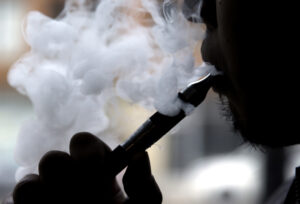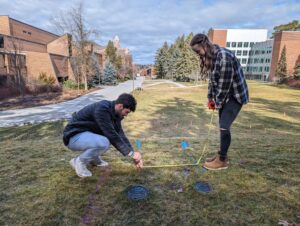Hot, smoky temperatures have decreased huckleberry production, which researchers say are a critical part of the diet of threatened grizzly bears.
Hotter temperatures and more intense fire seasons have played a major role in the decreased number of berries, worrying researchers who monitor grizzly populations. The smaller crop sizes could hurt deer, elk and many other species that also rely on huckleberries as a major food source. But bears, which are federally listed as a threatened species, may be at a greater risk than other animals.
“As climate change happens, we are seeing these berry populations moving farther and farther north, which impacts any recovery zones for grizzly bears,” said Chelsea Davis, manager of the Bear Center, where researchers study bear diets, hibernation, and growth.
Bears prefer a balanced diet of protein, fats, and carbohydrates, according to a report this fall authored by Washington State University Professor Charles Robbins and a team of researchers. That article, published in Scientific Reports, found that bears without a varied diet suffer adverse health effects.
“Berries and fruits are very important as fall foods that allow bears to accumulate the fat necessary for hibernation,” said Robbins, a professor of wildlife biology and the founder of the WSU’s Bear Research Center.
Fatty nutrients aren’t the only thing huckleberries provide for bears. They also have carbohydrates that are crucial for energy and aid in the fat digestion process. In coastal Alaska, bears have been observed leaving fertile fishing areas to forage for berries.
“It’s like why are you leaving what we would think is a perfect food source?” Davis said. “You’ve got salmon; some of the salmon have eggs so you get the roe. They have access to all of this protein, yet they still leave to pick berries.”
Huckleberry plants need lots of sunlight to produce fruit. Fires typically create an opening in the canopy that allows for more sun on the plant. However, in the past few years, the smoke plumes have blocked the plants’ ability to receive proper sunlight.
The huckleberry bushes found by pickers and researchers have followed generally the same pattern. The bushes were healthy, but there was little to no fruit growing.
“Heat domes or waves can lead to heat stress that can directly damage the plant and/or cause reduced yield,” said Lisa DeVetter, an assistant professor of small plant horticulture at WSU.
Huckleberries are still a wild fruit, meaning they have not been successfully farmed. If temperature patterns continue as they have in the past few years, many species could be at risk.
“Bears are always hungry and therefore looking for food. If bears cannot find proper nutrients where they are, they will turn to the next best food source,” said Robbins.
Rose hips, elderberry and serviceberry can all provide bears with sugar for proper fat accumulation.
“A lot of people have this misconception that bears are strictly carnivores,” Davis said. “Turns out you really have to take a look at what the bear needs and a big component of that diet is fat.”















